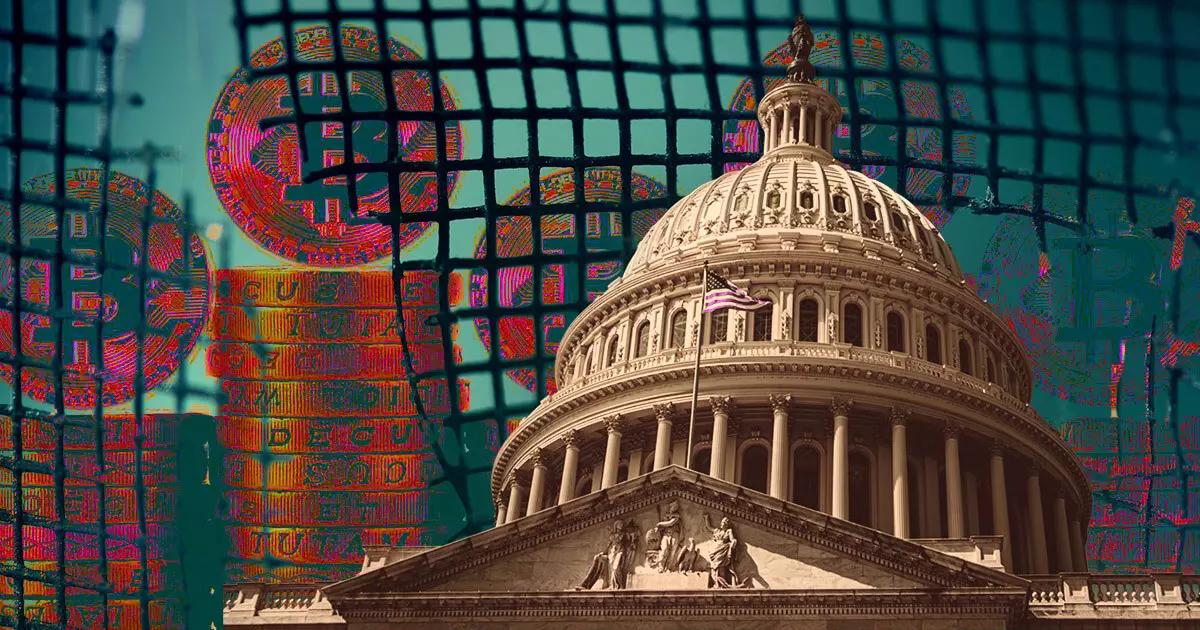Crypto advocacy groups, including CoinCenter, have expressed their concerns over a Senate bill that aims to impose stringent regulations on individuals involved in decentralized finance (DeFi). The bill in question, known as the Crypto-Asset National Security Enhancement and Enforcement Act (CANSEE), has faced criticism for its potential legal implications. Introduced on July 19 by senators from both Democratic and Republican parties, the bill holds DeFi platform operators and major stakeholders accountable for any illegal activities that occur on their platforms.
CoinCenter, with its executive director Jerry Brito at the forefront, issued a statement on July 20, denouncing the proposal as “messy, arbitrary, and unconstitutional.” The advocacy group highlighted that if the bill were to become law, individual developers would be subjected to sanctions penalties and Bank Secrecy Act (BSA) obligations. CoinCenter further voiced concerns about the extensive authority granted to the Secretary of the Treasury in determining control over various protocols, with proposed exemptions failing to address this issue adequately. Additionally, the group raised the issue of potential overreach, suggesting that even those who publish books containing code could face enforcement actions.
While acknowledging the government’s efforts to combat money laundering, CoinCenter characterized the bill as a “blanket ban” that it deemed unconstitutional and overly broad due to its content-based approach, which may impede free speech.
The Blockchain Association Highlights the Ineffectiveness of the CANSEE Bill
On July 19, the Blockchain Association, along with its CEO Kristin Smith, released its own response to the CANSEE bill. In their statement, the advocacy group argued that illegal transactions accounted for a mere 0.24% of all crypto transactions in 2022, suggesting that current law enforcement powers were sufficient. The association further criticized the bill, labeling it as “unworkable” and claiming that it fails to align with the nature of digital asset technology. Instead, the group expressed support for alternative measures that target illegal activities, such as proposed amendments to a national defense bill specifically addressing cryptocurrencies.
Decentralization Faces Threats from Proposed Regulations
Natalie Smolenski, a senior fellow for the BTC Policy Institute, voiced her concerns regarding the consequences of the CANSEE bill, stating, “They’re now trying to outlaw decentralization.” Smolenski’s remark highlights the potential impact of the bill on the decentralized nature of DeFi platforms, which have been instrumental in shaping the crypto industry. The proposed regulations may jeopardize the fundamental principles of decentralization, raising questions about the future of innovative financial technologies.
In summary, the CANSEE bill has drawn criticism from various crypto advocacy groups, including CoinCenter and the Blockchain Association. Both groups have expressed concerns about the bill’s potential infringement on individual rights, its broad scope, and its compatibility with digital asset technology. As the debate surrounding the bill continues, the future of decentralized finance hangs in the balance, with advocates urging policymakers to consider the importance of innovation and decentralized principles when formulating regulations.


Leave a Reply